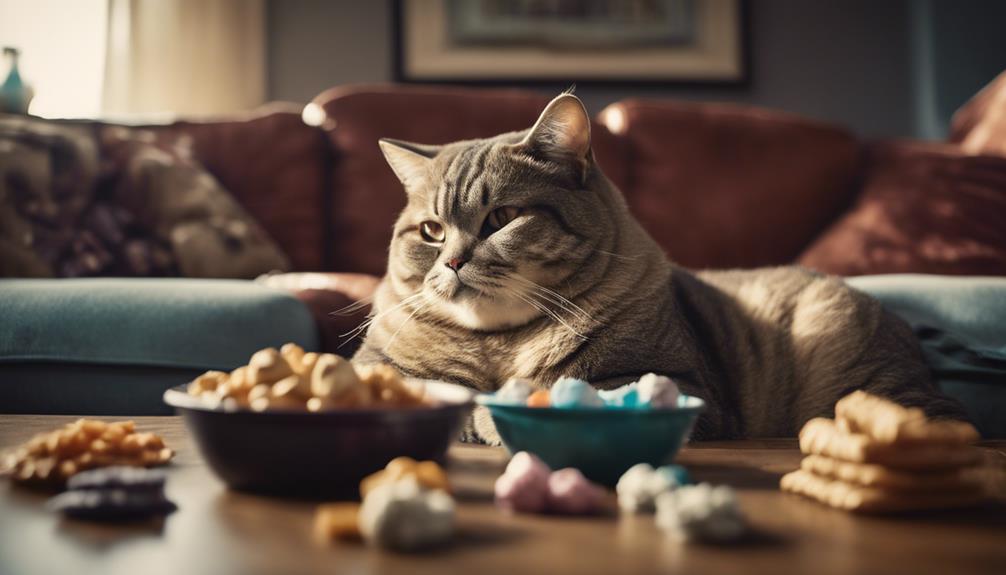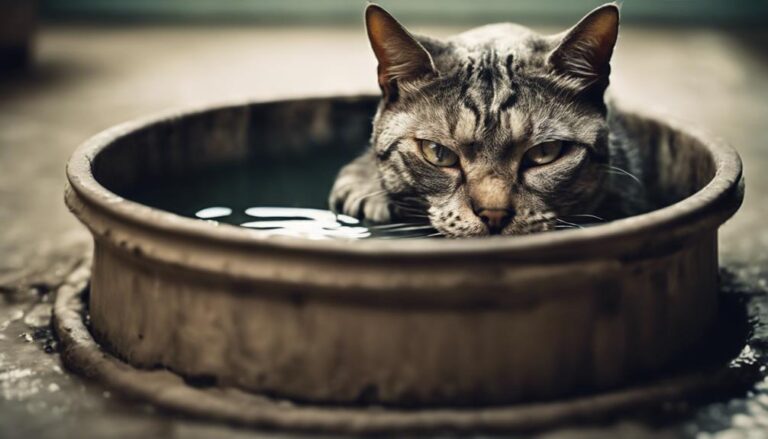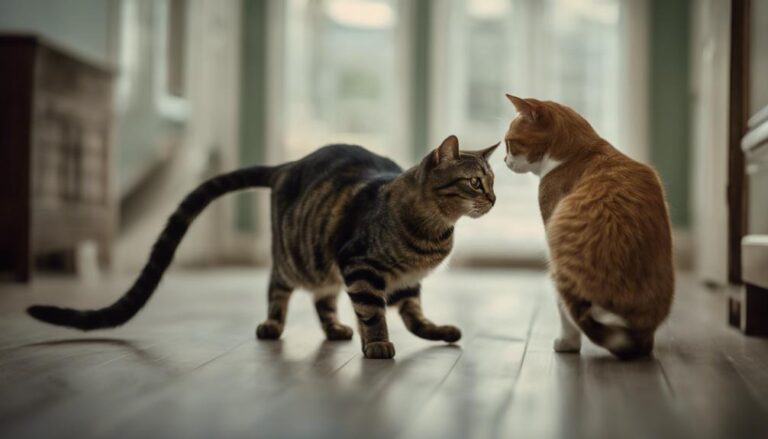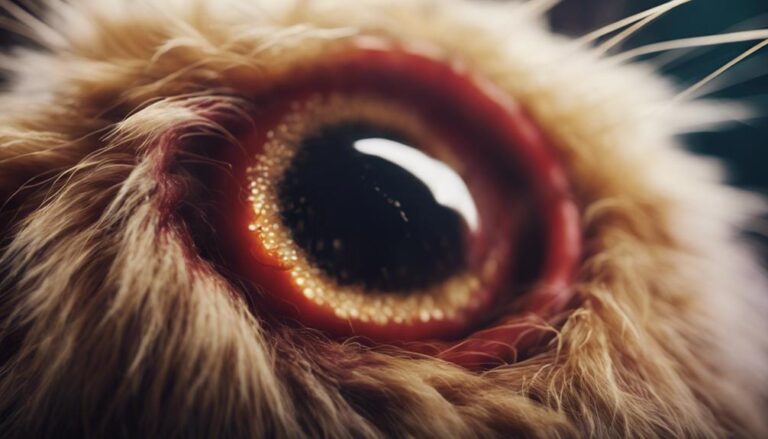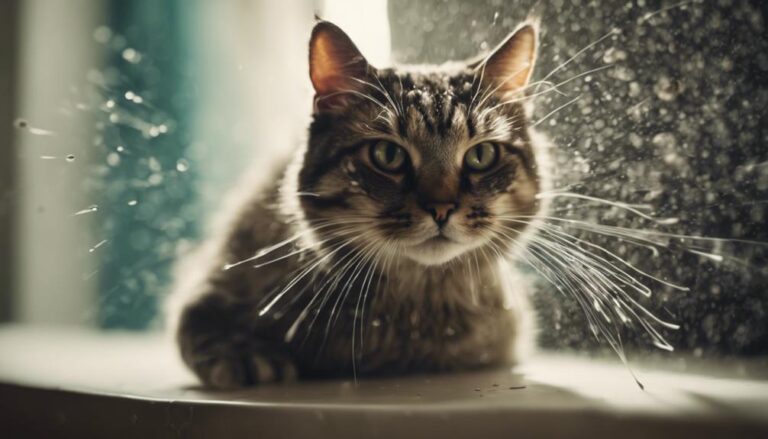Have you ever wondered why your beloved feline friend might be carrying a few extra pounds? There are several common causes of cat obesity that may surprise you. From the type of food you feed them to their daily activity levels, various factors contribute to this health concern among cats. Understanding these causes is crucial in helping your cat lead a healthier and happier life. Take a moment to explore the underlying reasons behind cat obesity and discover how you can make positive changes for your pet's well-being.
Age-Related Metabolic Changes
Age-related metabolic changes in cats can result in a decrease in muscle mass and an increase in body fat percentage. As cats age, their metabolic rate may decline, making it easier for them to put on weight. Senior cats also tend to be less active, which can further contribute to age-related weight gain. Due to these metabolic changes, adjustments in diet may be necessary to help maintain a healthy weight in older cats. Ensuring that senior cats receive appropriate nutrition through their diet is crucial in managing their body composition.
Regular veterinary check-ups play a vital role in monitoring age-related metabolic changes and weight management in senior cats. Veterinarians can provide guidance on dietary modifications and recommend appropriate feeding routines to prevent obesity in older cats. By staying proactive and seeking professional advice, you can help your senior cat maintain a healthy weight and overall well-being as they age.
Neutering and Energy Expenditure
When you neuter your cat, their energy expenditure may decrease by up to 30%, making it harder to manage their weight.
This lower metabolic rate after spaying or neutering can lead to weight gain in your cat.
Keep in mind that altered hormone levels post-neutering can affect your cat's appetite and activity levels, potentially causing overeating and weight issues.
Neutering and Weight Gain
Neutering can result in weight gain for cats, primarily due to changes in metabolism that lower their energy expenditure. Neutered cats may experience alterations in hormonal balance, affecting appetite regulation and energy utilization.
Here are four key points to help you understand the impact of neutering on weight gain:
- Neutered cats have lower energy expenditure, making weight gain more likely.
- Female cats, especially after being spayed, are at a higher risk of gaining weight.
- Changes in metabolism post-neutering can contribute to obesity risk.
- Hormonal imbalances post-neutering can disrupt appetite regulation, influencing weight management efforts.
Energy Expenditure Importance
Understanding the significance of energy expenditure is crucial in comprehending how neutering can impact a cat's weight management and obesity risk. Neutering can decrease a cat's energy expenditure by up to 30%, leading to a higher risk of obesity due to lower activity levels and reduced calorie requirements.
After neutering, cats may experience changes in metabolism and hormonal regulation, requiring fewer calories to maintain a healthy weight. Energy expenditure plays a vital role in determining a cat's post-neutering weight status, making it essential to monitor calorie intake and activity levels to prevent weight gain.
Underlying Health Issues
Addressing underlying health issues is crucial in understanding and combatting feline obesity.
- Medical conditions such as hypothyroidism and diabetes mellitus can contribute to weight gain in cats, affecting their overall health.
- Hormonal imbalances, like insulin resistance, can disrupt the body's ability to regulate weight, leading to obesity over time.
- Metabolic disorders, such as Cushing's disease or polycystic ovary syndrome, may impact the cat's metabolism, making it easier for them to gain excess weight.
- Gastrointestinal disorders like pancreatitis or inflammatory bowel disease can interfere with proper nutrient absorption, potentially causing the cat to gain weight despite consuming a normal diet.
Understanding and addressing these underlying health issues is essential in managing feline obesity effectively. By working closely with your veterinarian to diagnose and treat any medical conditions, you can help your cat achieve a healthier weight and live a more comfortable life.
Lack of Physical Activity
To prevent obesity in cats, ensuring they engage in regular physical activity is crucial. Cats with a sedentary lifestyle are more prone to weight gain due to a lack of activity. Indoor cats, especially, may not get sufficient exercise, putting them at risk of obesity. A sedentary lifestyle, characterized by low activity levels and a lack of playtime, can contribute to this issue. Without opportunities for climbing and interactive toys, cats may lead a more inactive life, leading to weight problems.
Cats require both mental and physical stimulation to prevent obesity and maintain a healthy weight. Encouraging regular play sessions and providing environmental enrichment can help combat obesity caused by a lack of physical activity. By increasing your cat's activity levels and incorporating more playtime into their routine, you can help them stay fit and healthy. Remember, keeping your cat active is essential in preventing obesity-related health issues.
Inappropriate Diet Choices
When choosing your cat's diet, be wary of poor food choices, which can lack essential nutrients and lead to weight gain.
Overfeeding habits, like giving too many treats or sharing human foods, can also contribute to feline obesity.
It's important to be mindful of what you feed your cat to maintain a healthy weight and overall well-being.
Poor Food Choices
Poor food choices, like opting for high-carbohydrate and low-protein options, can significantly contribute to cat obesity. When it comes to feeding your feline friend, it's essential to make wise decisions to help them maintain a healthy weight. Here are some points to consider:
- Protein-Rich Diets: Cats need protein to support muscle mass and overall health.
- Avoid High-Carbohydrate Foods: Opt for options that are low in carbs to prevent weight gain.
- Steer Clear of Poor Quality Commercial Cat Foods: Look for products with minimal fillers and additives.
- Watch Treat Intake: Limit treats and human food to maintain a balanced diet.
Lack of Nutrients
In considering your cat's nutritional needs, it's important to understand how inappropriate diet choices lacking essential nutrients can contribute to obesity. Cats require a balanced diet with adequate protein, vitamins, and minerals to maintain a healthy weight.
Feeding your pet low-quality, nutrient-deficient foods can lead to weight gain and obesity. High-carbohydrate diets, which lack essential nutrients, can cause your cat to become overweight. To prevent obesity due to a lack of nutrients, consult with a veterinarian for tailored dietary recommendations.
Overfeeding Habits
Overfeeding your cat with high-calorie foods is a common contributor to feline obesity. To avoid inappropriate diet choices, be mindful of these habits:
- Free-feeding: Leaving food out all day can lead to overeating.
- Calorie-dense treats: Giving too many treats can add excess calories to your cat's diet.
- Lack of portion control: Not measuring meals can result in overfeeding.
- Feeding human foods: Human foods often have high fat content and should be limited.
Sedentary Lifestyle and Overfeeding
A lack of physical activity and excessive food consumption contribute significantly to cat obesity. Cats with a sedentary lifestyle are prone to weight gain due to reduced exercise and calorie expenditure.
Overfeeding, particularly with high-calorie and high-carb diets, can lead to excess weight in felines. It's essential to control portion sizes and avoid feeding cats inappropriate human foods to prevent obesity.
Cats that lack stimulation, playtime, and exercise opportunities are at higher risk of becoming overweight. Overfeeding dry kibble, which is calorie-dense, is a common mistake that can contribute to obesity in indoor cats with limited physical activity.
To combat cat obesity, ensure your feline friend has a balanced diet, appropriate portion sizes, and plenty of opportunities for exercise and mental stimulation. By addressing both sedentary behavior and overfeeding habits, you can help your cat maintain a healthy weight and overall well-being.
Frequently Asked Questions
What Causes Obesity in Cats?
To understand what causes obesity in cats, you need to consider factors like diet, metabolism changes post-neutering, indoor living, lack of exercise, age, and health issues. Overfeeding, high-carb foods, and human treats can also contribute.
How Do You Treat Obesity in Cats?
To treat obesity in cats, you need a tailored weight loss plan. Control feeding, manage portions, and restrict calories. Get veterinary supervision, prescription diets, and gradual changes. Include regular exercise for effective outcomes and support.
Why Is My Cat Getting Fatter and Fatter?
Your cat may be getting fatter due to factors like age, neutering, indoor lifestyle, or diet issues. Neutered cats can gain weight easier. Indoor cats may be less active. Watch their diet and health closely to address weight gain.
What Diseases Make Cats Fat?
If your cat is gaining weight, diseases like diabetes, hypothyroidism, PCOS, and Cushing's syndrome could be the culprits. These conditions may lead to fat accumulation in your feline friend, so consult a vet promptly.

